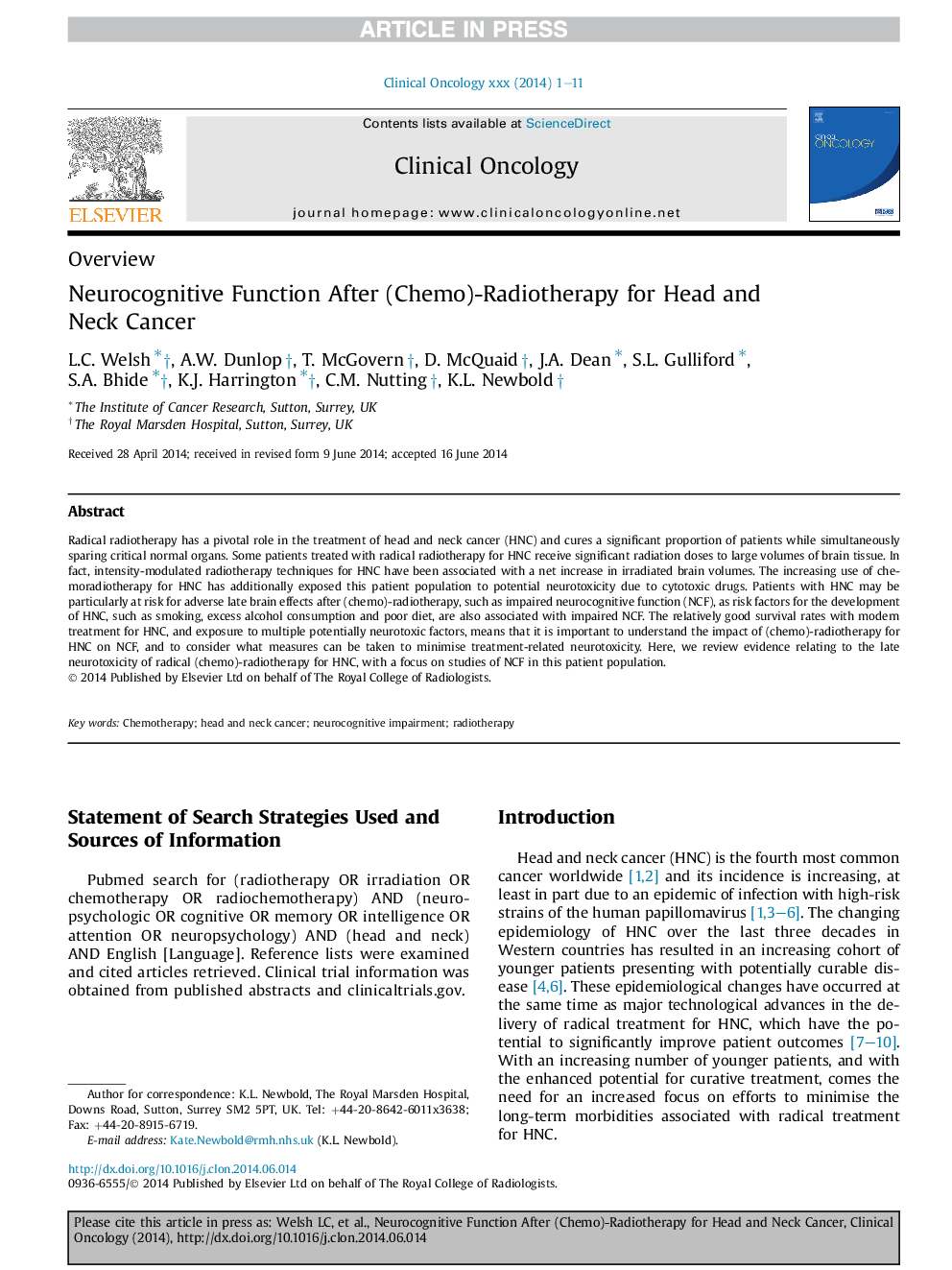| کد مقاله | کد نشریه | سال انتشار | مقاله انگلیسی | نسخه تمام متن |
|---|---|---|---|---|
| 5698174 | 1410346 | 2014 | 11 صفحه PDF | دانلود رایگان |
عنوان انگلیسی مقاله ISI
Neurocognitive Function After (Chemo)-Radiotherapy for Head and Neck Cancer
ترجمه فارسی عنوان
عملکرد عصبی پس از (شیمی) رادیوتراپی برای سر و گردن
دانلود مقاله + سفارش ترجمه
دانلود مقاله ISI انگلیسی
رایگان برای ایرانیان
کلمات کلیدی
شیمی درمانی، سر و گردن، اختلال شناختی عصبی، پرتودرمانی،
موضوعات مرتبط
علوم پزشکی و سلامت
پزشکی و دندانپزشکی
تومور شناسی
چکیده انگلیسی
Radical radiotherapy has a pivotal role in the treatment of head and neck cancer (HNC) and cures a significant proportion of patients while simultaneously sparing critical normal organs. Some patients treated with radical radiotherapy for HNC receive significant radiation doses to large volumes of brain tissue. In fact, intensity-modulated radiotherapy techniques for HNC have been associated with a net increase in irradiated brain volumes. The increasing use of chemoradiotherapy for HNC has additionally exposed this patient population to potential neurotoxicity due to cytotoxic drugs. Patients with HNC may be particularly at risk for adverse late brain effects after (chemo)-radiotherapy, such as impaired neurocognitive function (NCF), as risk factors for the development of HNC, such as smoking, excess alcohol consumption and poor diet, are also associated with impaired NCF. The relatively good survival rates with modern treatment for HNC, and exposure to multiple potentially neurotoxic factors, means that it is important to understand the impact of (chemo)-radiotherapy for HNC on NCF, and to consider what measures can be taken to minimise treatment-related neurotoxicity. Here, we review evidence relating to the late neurotoxicity of radical (chemo)-radiotherapy for HNC, with a focus on studies of NCF in this patient population.
ناشر
Database: Elsevier - ScienceDirect (ساینس دایرکت)
Journal: Clinical Oncology - Volume 26, Issue 12, December 2014, Pages 765-775
Journal: Clinical Oncology - Volume 26, Issue 12, December 2014, Pages 765-775
نویسندگان
L.C. Welsh, A.W. Dunlop, T. McGovern, D. McQuaid, J.A. Dean, S.L. Gulliford, S.A. Bhide, K.J. Harrington, C.M. Nutting, K.L. Newbold,
